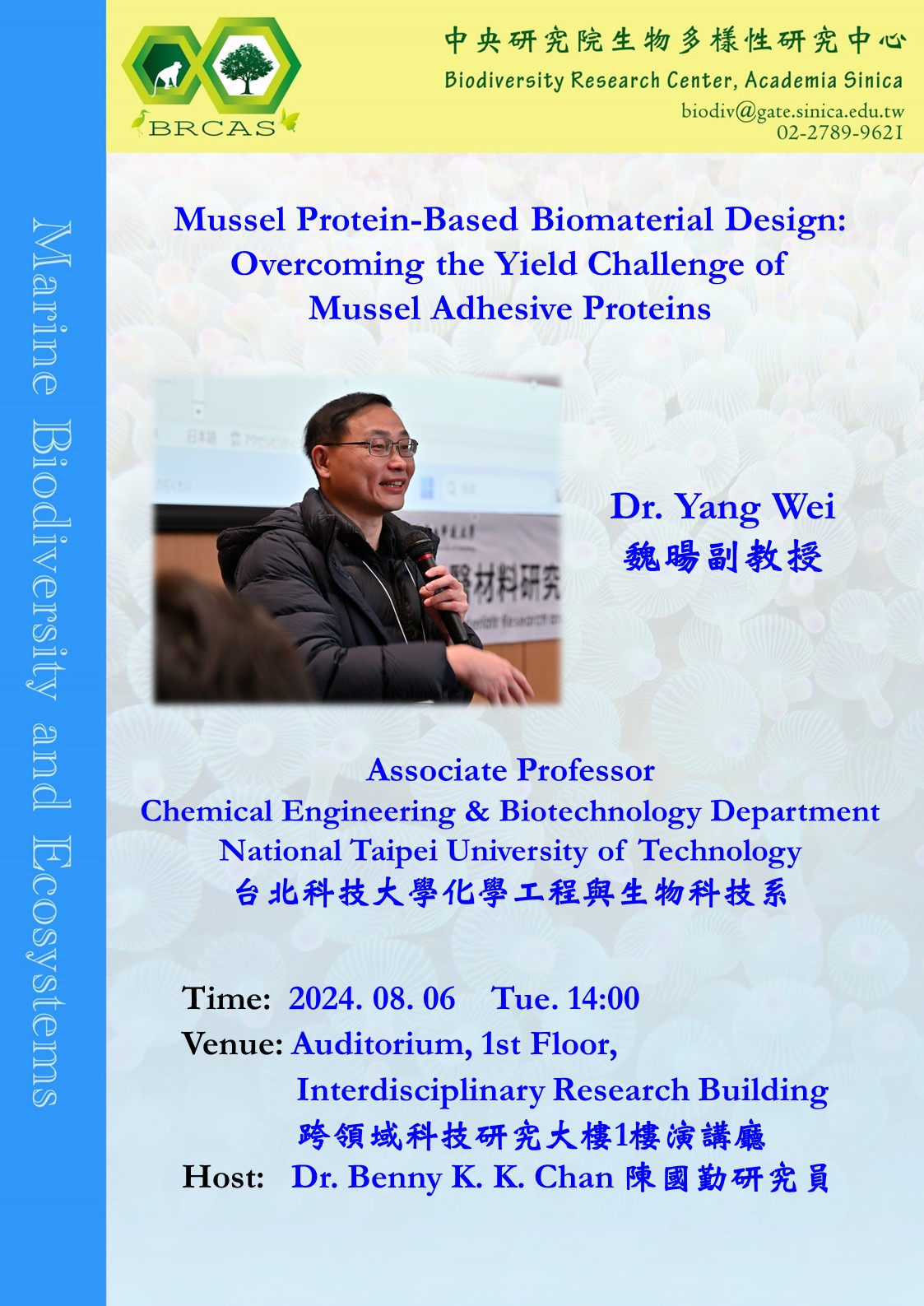- Lectures
- Biodiversity Research Center
- Location
Auditorium, 1st Floor, Interdisciplinary Research Building
- Speaker Name
Dr. Yang Wei (National Taipei University of Technology)
- State
Definitive
- Url
Abstract
Mussel foot proteins (MFPs) hold immense potential for various applications, but their low natural production yield poses a significant challenge. Advanced recombinant techniques can improve production efficiency but often lack the essential mussel adhesion chemical signature, 3,4-Dihydroxyphenylalanine (DOPA). To address this limitation, we employed amino acid labeling and mass spectrometry techniques to identify the configuration of mussel foot proteins adsorbed on a solid substrate, focusing on the labeling profiles of modified lysine (Lys) and arginine (Arg). Our findings detail the binding sequence between the mussel adhesive and a solid surface, analyzed using a quartz crystal microbalance (QCM). This study can potentially benefit the development of accurate and efficient mussel protein-inspired sequences for designing wet adhesive polymers for specific surfaces.
Additionally, we synthesized MFP nanoparticles through spray-drying and assessed their adhesion on surfaces with varying hydrophobicity. Nanoparticle-based adhesives offer enhanced adhesion on solid surfaces and can further increase adhesive ability due to the enhanced cohesion when metal ions play a role.
These results provide insights into the molecular-level binding mechanism of MFP adhesives, offering a solution to the low production yield challenge and potential for enhancing bioadhesive materials.









 Home
Home

